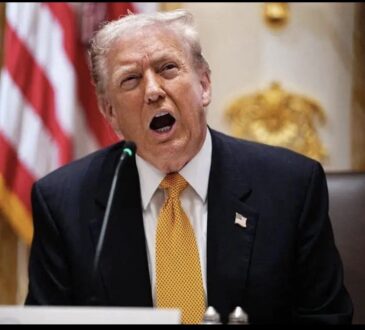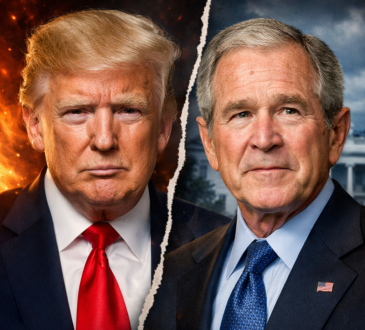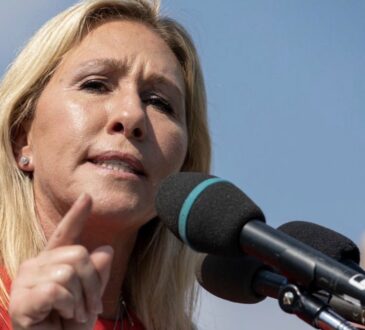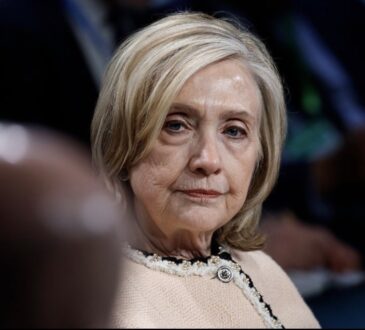
Donald Trump has ramped up his attacks on the media especially those that publish stories he doesn’t like. He’s openly targeting news outlets and reporters, even going after longtime allies like Rupert Murdoch and The Wall Street Journal.
Recently, when The Wall Street Journal ran a story about Trump’s past connection to Jeffrey Epstein a convicted sex offender Trump admitted he tried to stop the story from being published. He said he told Murdoch the story was fake and demanded it be killed. When that didn’t happen, Trump lashed out publicly and then sued the newspaper for $10 billion, claiming it would ruin his reputation and finances.
The article said Trump had sent Epstein a strange birthday letter years ago, including a line that said, “may every day be another wonderful secret.” Trump’s response wasn’t just legal — it was personal. He sued not only the Journal but also Murdoch and the reporters involved.
Even though Murdoch’s media empire, including Fox News, has generally supported Trump, that didn’t shield them. Trump’s actions send a strong message: if you report something critical about him, even if it’s factual, he might try to punish you — legally or otherwise.
Trump has always had a reputation for being extremely sensitive to criticism, and he often uses lawsuits as a weapon. But this latest legal campaign is more serious than usual. Experts say it’s rare and alarming for a sitting president to sue a news outlet over its reporting.
Free speech and a free press are protected under the First Amendment. In America, people — especially journalists — are allowed to criticize public officials. And public figures like Trump have to meet a high standard to prove defamation. Courts have long agreed that if someone chooses to be in the public eye, they also choose to be scrutinized.
But Trump doesn’t seem to accept that. He’s pushing a dangerous idea: that if someone says something he doesn’t like, he should be able to punish them. And this effort to control the media isn’t limited to newsrooms. He’s also put pressure on law firms, colleges, and even TV shows that don’t support him.
Since returning to the White House, Trump has signed executive orders targeting law firms that work on causes he disagrees with. He’s demanded they work for him for free, and some have given in.
He’s also gone after universities, pushing them to favor conservative students, hire pro-Trump faculty, and shut down programs about race and social justice. If they refuse, he threatens to cut their federal funding. Some schools have caved, including Columbia University, which recently agreed to a massive settlement.
His war against the media has only grown. In February, he signed an order trying to rename the Gulf of Mexico to the Gulf of America. When the Associated Press didn’t go along with it, he banned their reporters from White House events. He’s done similar things to other reporters, including ones from The Wall Street Journal and HuffPost.
Trump’s pattern is clear: criticize him, and you risk being sued, silenced, or cut off. He even sued an Iowa pollster and a newspaper after they published a poll that showed him losing — even though he later won that state.
The Federal Communications Commission, now under Trump’s influence, has also gone after media outlets. They started investigating a radio station in San Francisco that reported on immigration raids. Trump’s officials claimed the station might have violated the public interest — a move critics say was really about punishment, not policy.
Some experts point out that every politician complains about media coverage. But Trump is different because he’s actively using the power of the government to try and shut the press down.
He’s also taken aim at CBS and its parent company, Paramount. After CBS aired an interview with Kamala Harris during the 2024 campaign, Trump accused them of editing it unfairly. He sued Paramount, and even though the company said it did nothing wrong, it paid Trump a $16 million settlement.
Afterward, late-night host Stephen Colbert, a frequent Trump critic, mocked the company for caving. Just a few days later, CBS announced Colbert’s show was canceled. They said it was for financial reasons, but Trump publicly celebrated, saying he was glad Colbert got fired — and hinted that more of his critics might be next.
Coincidentally, Paramount’s merger with another company was approved around the same time, leading some to wonder whether the payout and the show’s cancellation were linked to Trump’s pressure campaign.
Critics worry that these kinds of threats, lawsuits, and behind-the-scenes moves are creating a culture of fear. Institutions may start to believe that standing up to Trump isn’t worth the risk.
And this isn’t limited to journalists or universities. Even daytime talk shows like The View have come under fire. When co-host Joy Behar joked that Trump was jealous of Obama, the White House responded with a chilling statement suggesting her show might be the next to be canceled.
All of this echoes the tactics used by leaders in countries with weak press freedoms, like Russia and Hungary. In those places, journalists have been jailed, news outlets shut down, and critics silenced. Trump has openly praised those leaders.
When leaders start punishing anyone who disagrees with them, the consequences go far beyond one TV show or one newspaper. It puts the entire system of accountability and democracy at risk. If people become too scared to speak out, the public loses access to the truth — and those in power can act without being challenged.
Critics say Trump is trying to send a message: fight him, and you’ll pay for it. But if institutions stay silent or back down, it only encourages more attacks. That’s why many are calling on citizens, media organizations, and companies to stand firm and defend free speech — before it’s too late.




